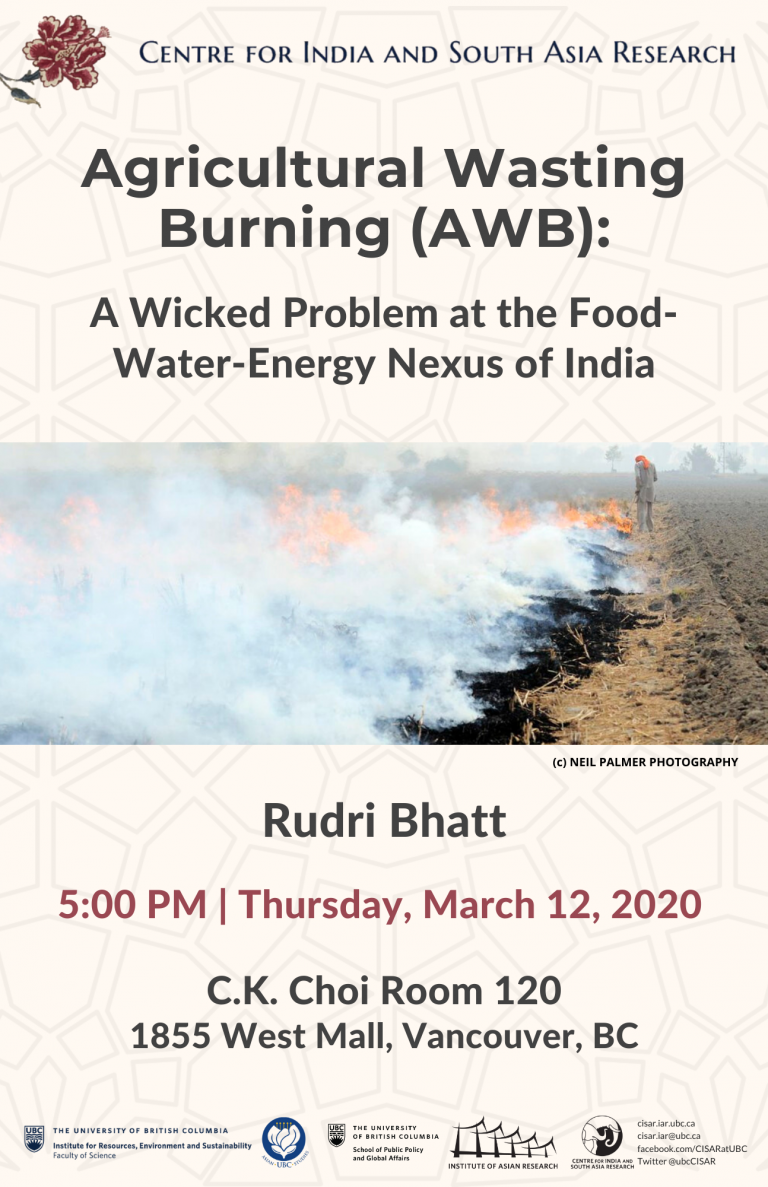This event is in collaboration with the Department of Asian Studies, the Institute for Resources, Environment, and Sustainability, with thanks to the Goel family for their ongoing support for the Nehru Humanitarian Graduate Award.
Presenter
Rudri is an MSc student at the Institute for Resources, Environment and Sustainability. (IRES) She
completed her BSc in Civil and Environmental Engineering from Technion- Israel Institute of Technology. Rudri is interested in working towards improved air quality and energy security in developing countries. Her research at IRES focuses on looking at farmers’ perspectives on alternatives to agricultural residue burning and its policy solutions, in Punjab, India.
Abstract
Rice farmers in Northern India burn the rice “stubble” left in the fields after a harvest in order to
clear land for the next sowing season. During several weeks in the burning season, from 15
October to 15 November, the half a billion residents of the Indo-Gangetic Plain, including those
living in the national capital New Delhi, are routinely exposed to levels of local air pollution,
particularly of PM 2.5 (fine particulate matter) that are ~100 times greater than the annual WHO
standard for this important pollutant. Despite a ban on AWB under the National Policy for
Management of Crop Residue (NPMCR) and National Green Tribunal Act (NGT), more than
48,000 fires were reported in 2019.
Several in-situ and ex-situ residue management alternatives are potentially available to farmers
in Punjab. Yet there is insufficient adoption of these alternatives as farmers face financial and
logistical challenges that force them to continue burning paddy residue. Through this work I am
addressing a key gap in the literature and attempting to initiate a dialogue with the farmers on
their perceptions of risks and benefits of burning paddy residue on the fields. This study also
aims to incorporate farmer concerns about cleaner alternatives proposed by the Indian
government regarding, inter alia, soil nutrient retention, cost of equipment, labor and time
required. This will help suggest policy recommendations for government incentives and actions
to help reduce residue burning in Punjab, India.
